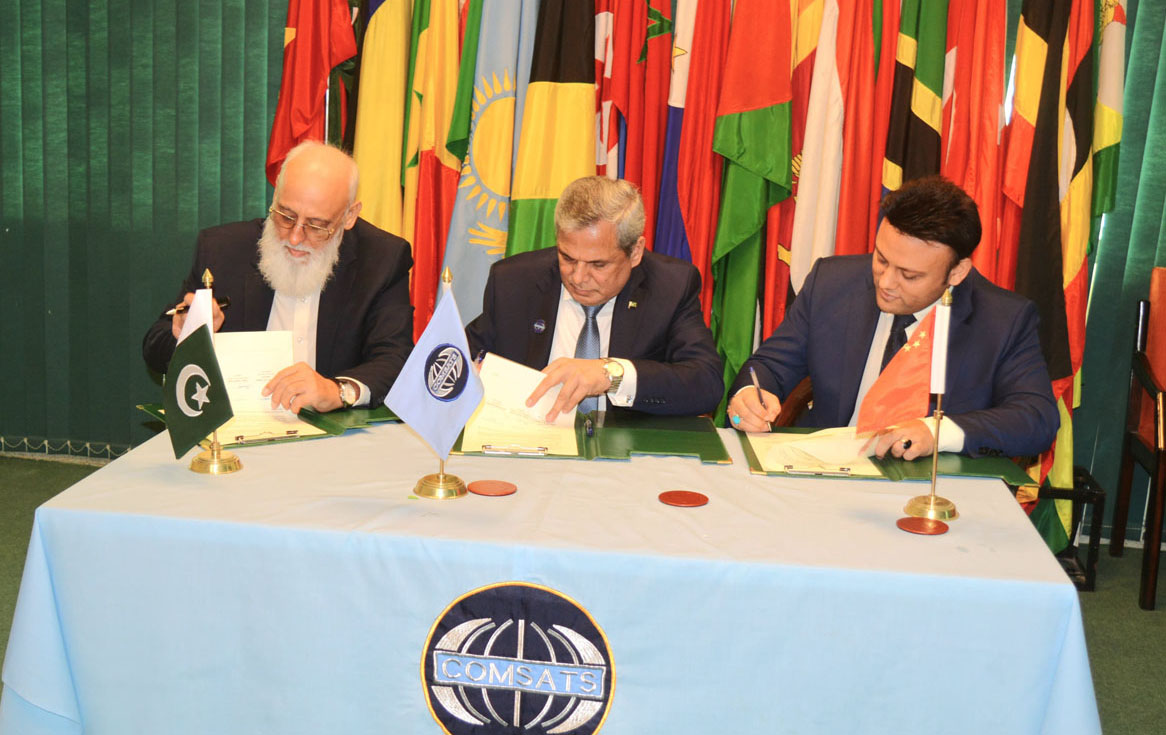The Commission on Science and Technology for Sustainable Development in the South (COMSATS) marked the 10th Anniversary of the International Day of Women and Girls in Science (IDWGS) with a high-level webinar that underscored the critical role of women in STEM and the need for an inclusive and equitable scientific landscape. Held under the theme “Unpacking STEM Careers: Her Voice in Science,” the event served as a platform to celebrate the contributions of women in STEM while addressing the systemic barriers that hinder their full participation.
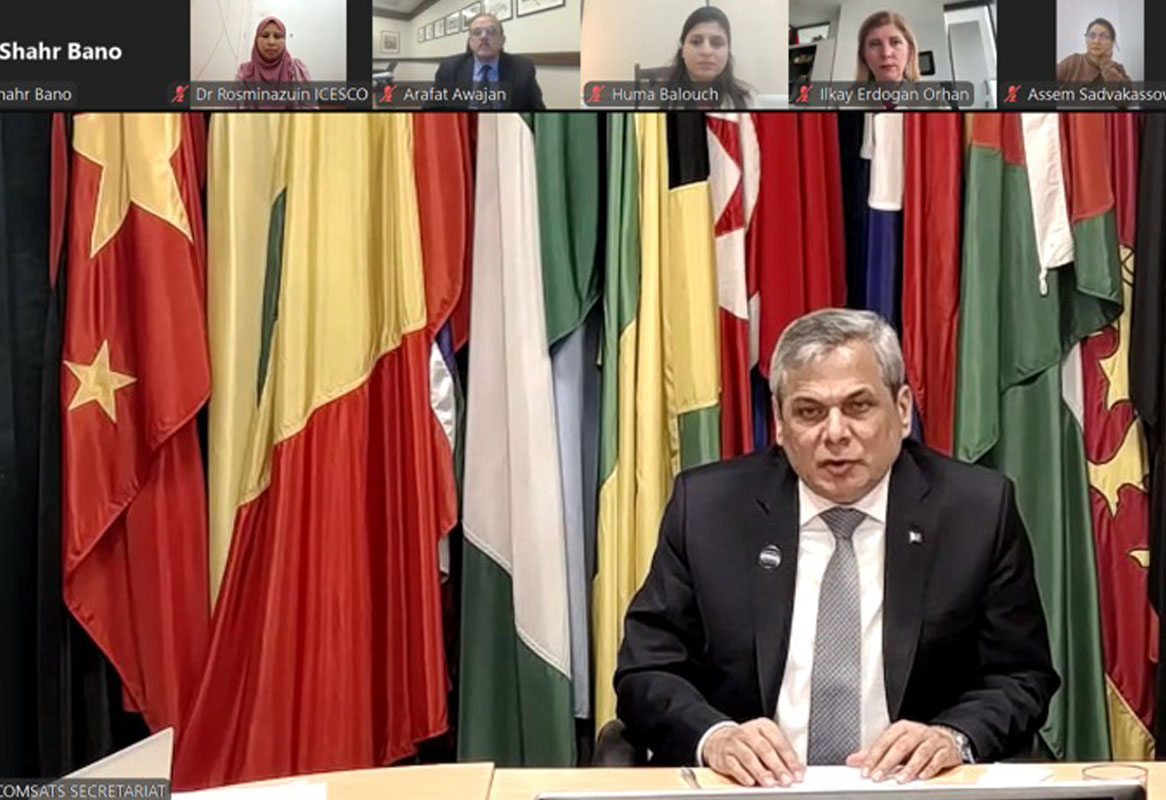
Ambassador Dr. Mohammad Nafees Zakaria, Executive Director of COMSATS, reaffirmed the organization’s commitment to gender equality in science and technology, emphasizing that sustainable development hinges on the full engagement of women in STEM. He highlighted COMSATS’ initiatives, including the Telehealth Program and the Centre for Climate and Sustainability (CCCS), as examples of women’s leadership in driving impactful scientific solutions. Recalling the advocacy of COMSATS’ founding patron, Prof. Abdus Salam, for gender inclusivity in science, he called for intensified global efforts, particularly in developing nations, to bridge the gender gap in STEM.
The webinar brought together distinguished speakers, including H.E. Shaza Fatima Khawaja, Minister of State for IT & Telecommunications, Pakistan; Prof. Dr. Quarraisha Abdool Karim, President of The World Academy of Sciences (TWAS); and Ms. Aban Marker Kabraji, Senior Regional Advisor for Climate and Environment, UNEP Asia-Pacific Region.
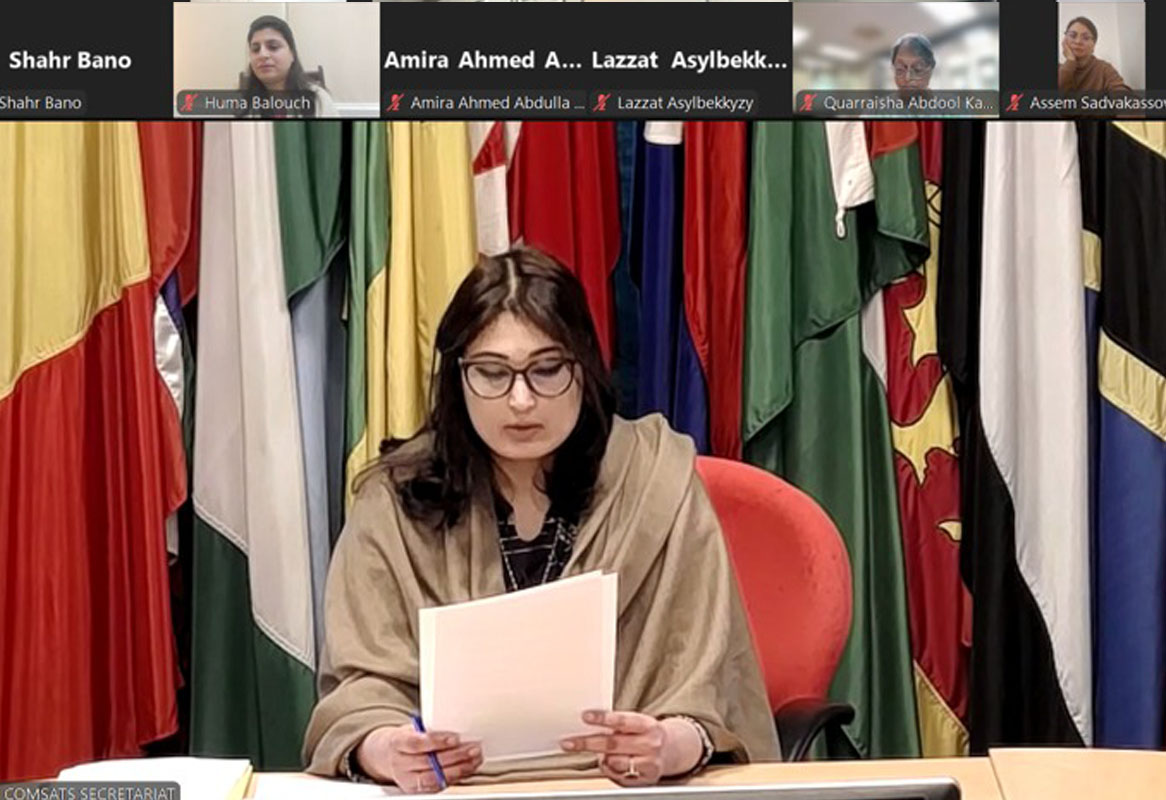
On behalf of the Minister of State for IT and Telecommunications, H.E. Ms. Shaza Fatima Khawaja, Dr. Mehwish Durani, Head of CCCS, delivered her message on the occasion. H.E. Ms. Shaza Fatima Khawaja highlighted the urgency of addressing gender disparities in STEM and emerging technologies, noting that women account for only 34% of the global STEM workforce and a mere 11% of leadership roles in technology-driven fields. She underscored that gender parity in STEM is not only a moral imperative but an economic necessity, essential for fostering innovation and sustainable growth. She further elaborated on Pakistan’s initiatives, including the Digital Gender Inclusion Strategy and the Digital Nation Pakistan Bill 2025, as well as targeted programs to enhance digital literacy, technology access, and women-led entrepreneurship. Stressing the importance of international collaboration, she called for gender-responsive policies to advance women’s representation in science and technology.
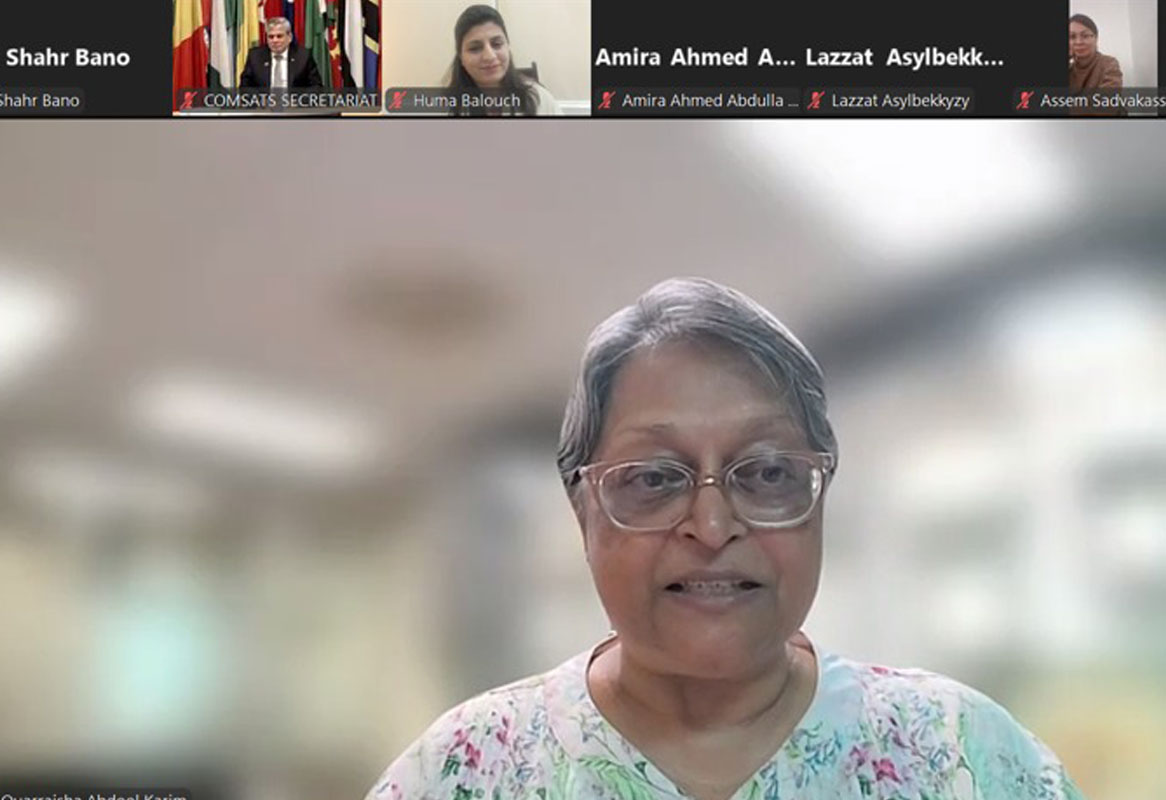
Prof. Dr. Quarraisha Abdool Karim emphasized the enduring vision of Nobel Laureate Prof. Abdus Salam, whose commitment to leveraging science for sustainable development in low- and middle-income countries led to the founding of TWAS. She highlighted TWAS’s dedication to global collaboration, scientific excellence, and gender equity, noting that women now constitute 50% of its governing council and that significant investments have been made in capacity-building initiatives such as the Young Affiliates Network. As the first woman president of TWAS, she underscored the need for sustained support for women in science, particularly through leadership and mentorship programs at the national level. Drawing from her personal journey as a scientist in South Africa, she highlighted the transformative power of science in empowering communities and addressing critical health challenges.
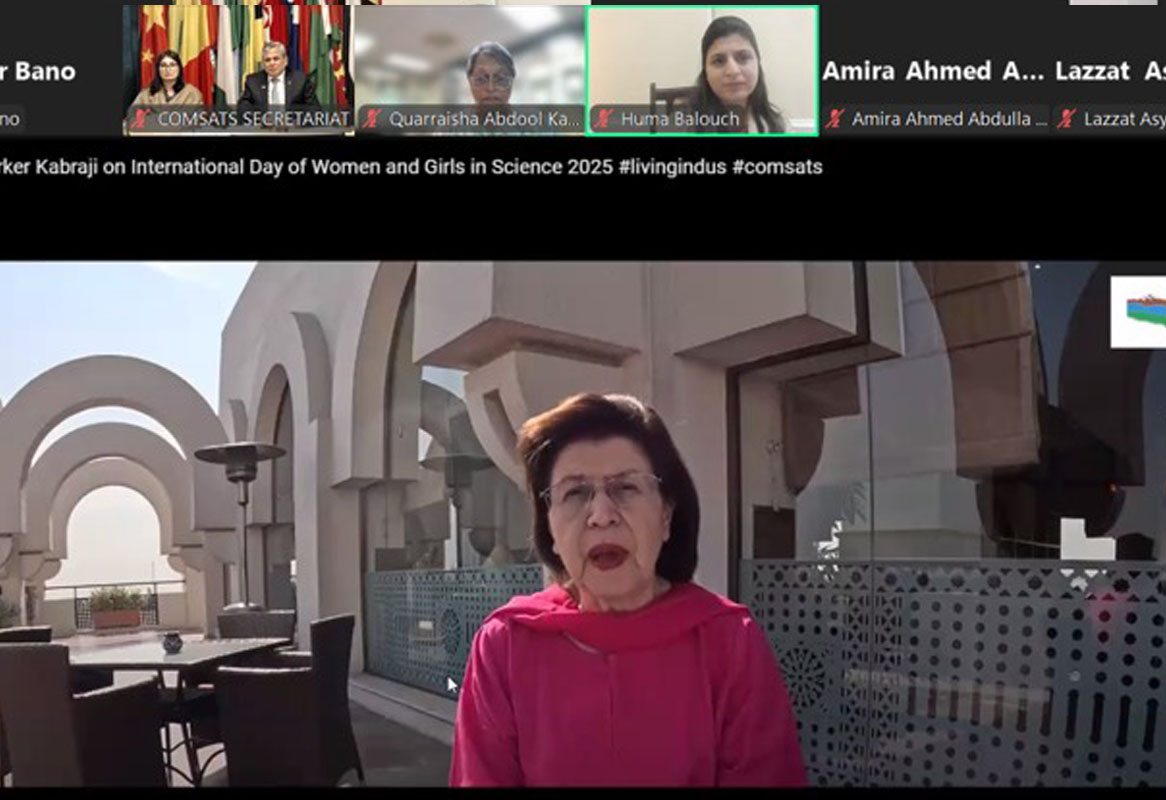
Ms. Aban Marker Kabraji addressed the intersection of gender, science, and climate resilience, emphasizing that while women disproportionately bear the brunt of climate change and socio-economic barriers, they are also powerful agents of change. She advocated for stronger policies to promote women’s participation in scientific leadership, flexible work arrangements, and mentorship programs to foster inclusivity in science and innovation. Additionally, she called for enhanced investment in education, equitable access to climate finance, and policy frameworks that support women-led technological solutions as essential components of a sustainable and resilient future.
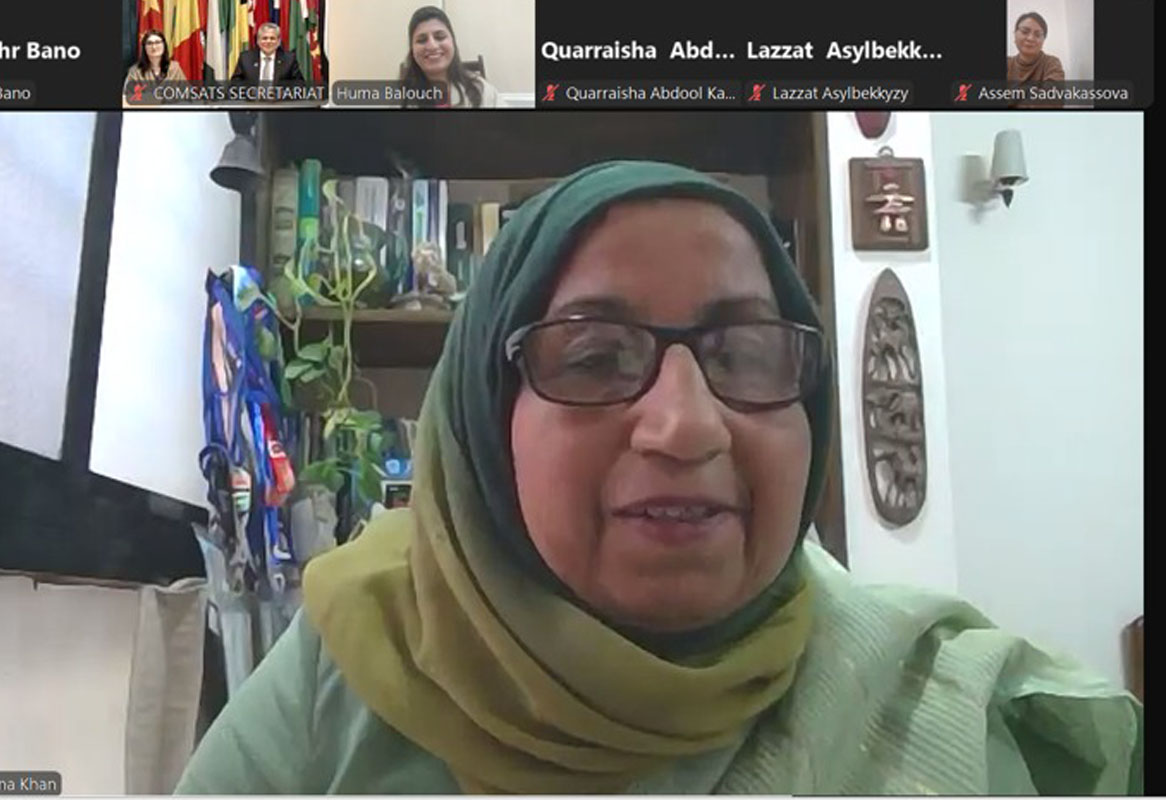
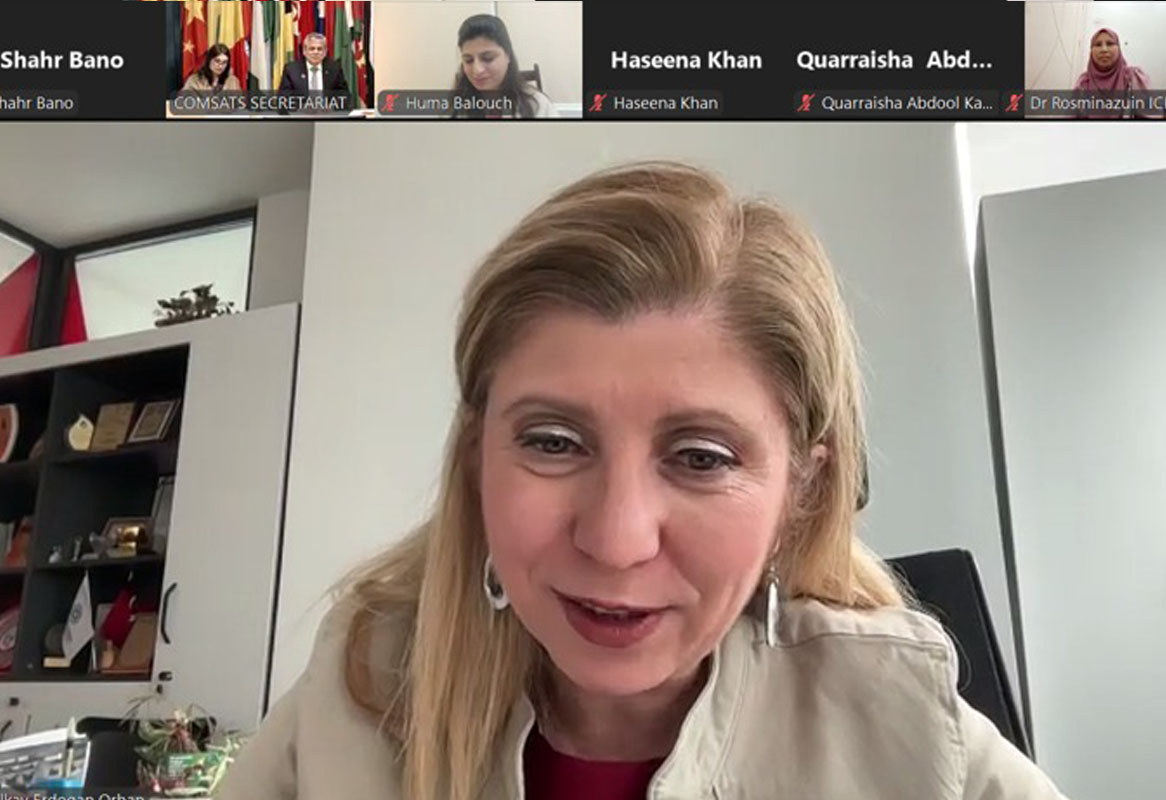
A dedicated panel discussion provided further insights into the challenges, opportunities, and strategic interventions necessary to foster gender inclusivity in STEM. The panel featured esteemed scientists and academicians, including Prof. Arafat Awajan from the Royal Scientific Society (RSS), Jordan; Prof. Dr. Haseena Khan from the University of Dhaka, Bangladesh; Prof. Dr. Erdoğan Orhan Ilkay from Lokman Hakim University, Türkiye; and Assoc. Prof. Dr. Rosminaazuin Bt. Ab. Rahim from the International Islamic University Malaysia. Prof. Awajan highlighted the paradox of high female STEM enrollment in Jordan versus their low workforce participation, emphasizing the need for policy reforms, AI-driven inclusivity, and leadership representation. Prof. Dr. Haseena Khan underscored the equal intellectual potential of women and men, while noting that societal norms and structural biases continue to impede women’s career progression in STEM. She called for mentorship programs, strong female role models, and awareness campaigns to shift societal perceptions. Prof. Dr. Erdoğan Orhan Ilkay examined women’s representation in R&D across OIC countries and recommended workplace policies that provide equal opportunities, childcare facilities, career re-entry mechanisms, and gender-balanced leadership roles to close the gender gap. Assoc. Prof. Dr. Rosminaazuin Bt. Ab. Rahim emphasized the importance of STEM education awareness and sustainable engineering policies, advocating for increased mentorship, professional networking opportunities, and flexible work policies to retain and advance women in STEM careers.
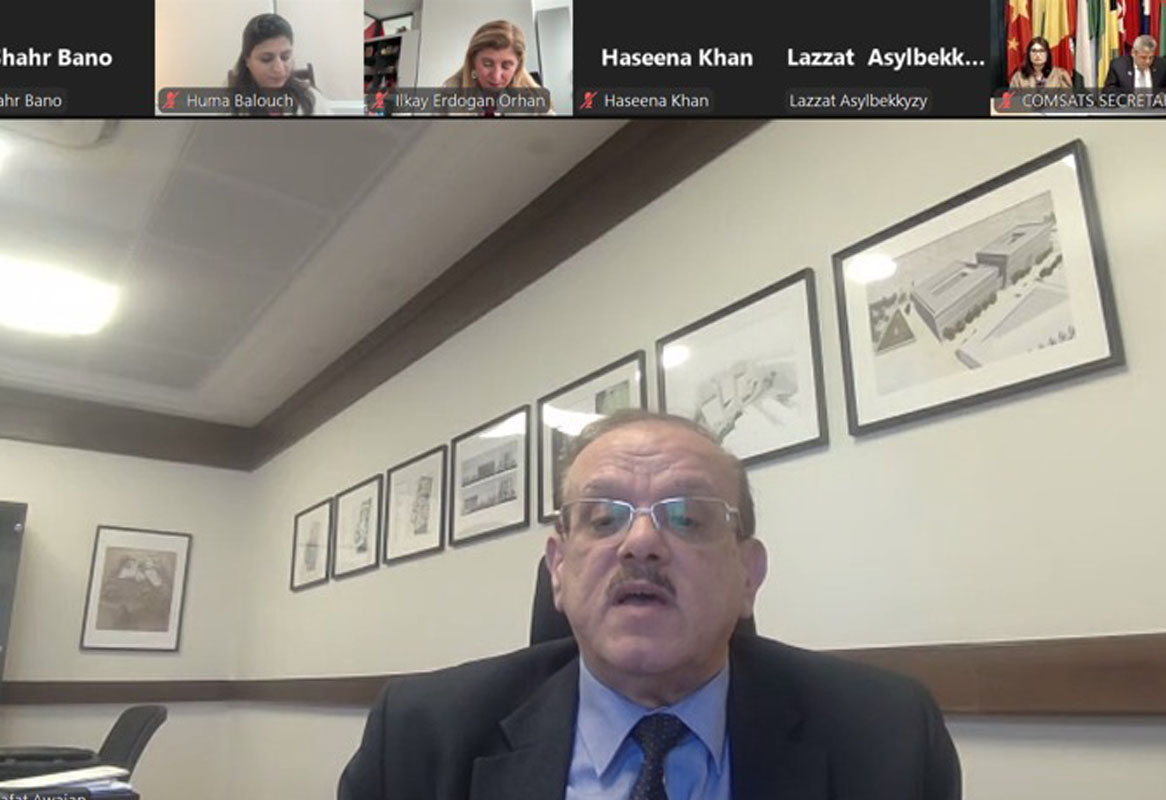
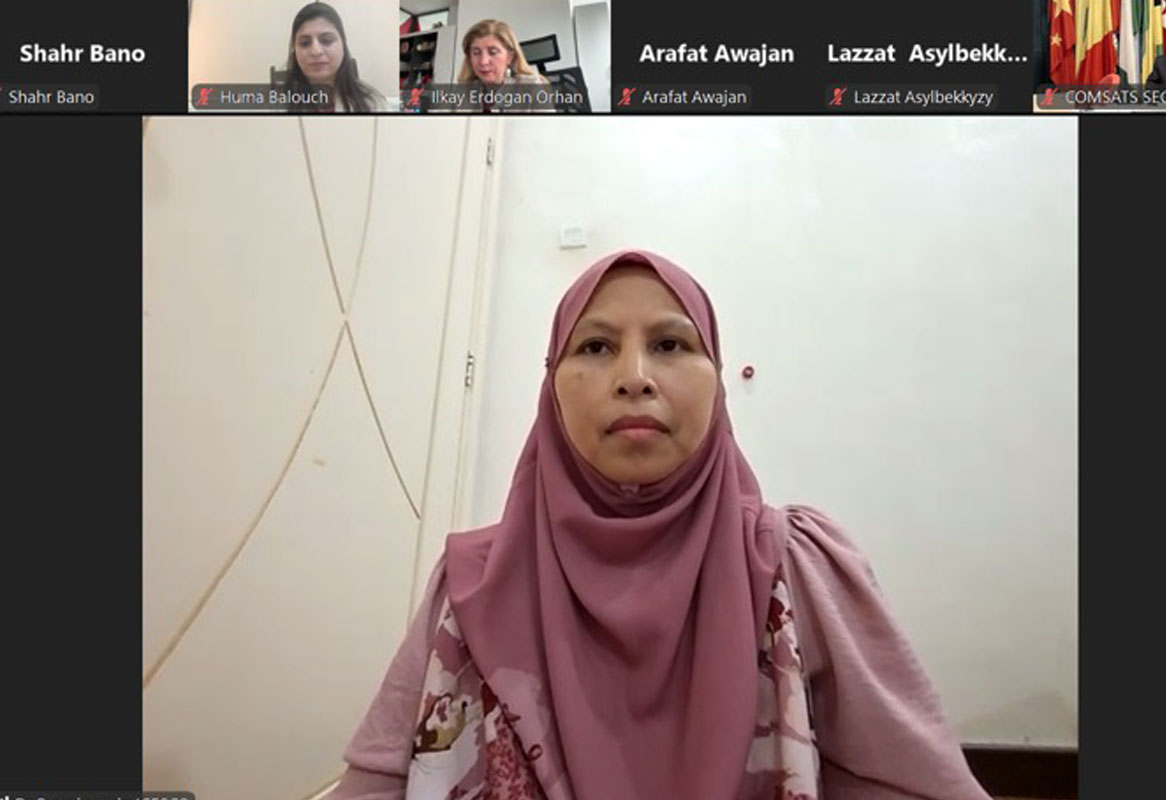
The session concluded with a collective call for systemic reforms and cross-sector collaborations to create an equitable STEM ecosystem. The key recommendations included strengthening gender-inclusive policies, investing in targeted STEM education and capacity-building programs, introducing workplace flexibility and support mechanisms, bridging the digital divide, and fostering global partnerships to advance gender-responsive innovation and sustainable development.
COMSATS reaffirmed its unwavering commitment to championing gender equality in science and technology, recognizing that the empowerment of women in STEM is indispensable for driving scientific progress, economic resilience, and long-term sustainability. The event underscored the necessity of collective action to ensure that women are not only participants but leaders in shaping the future of science, technology, and innovation.

